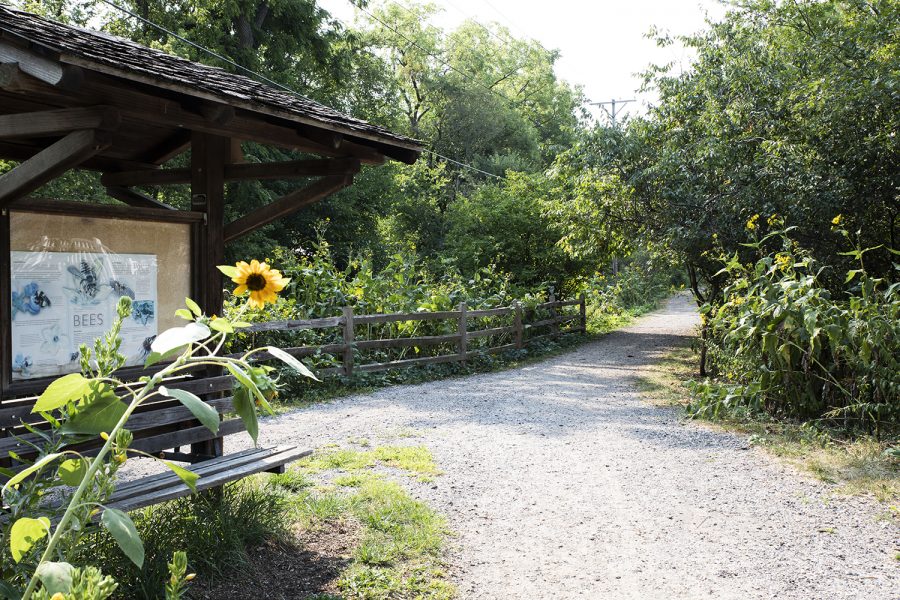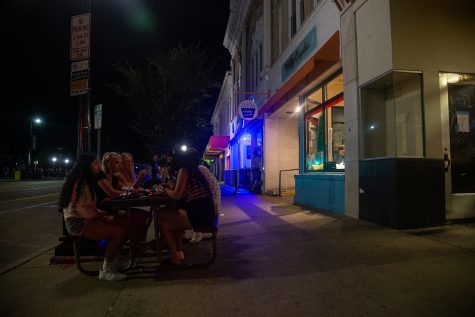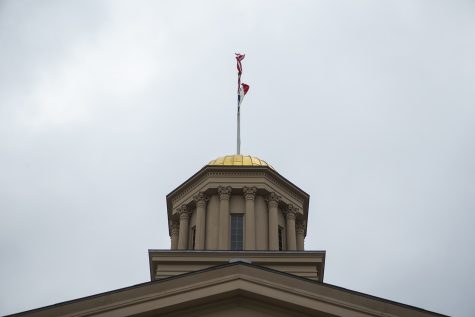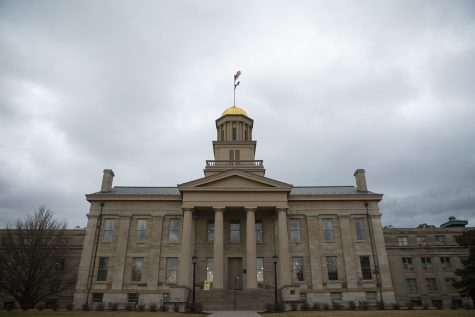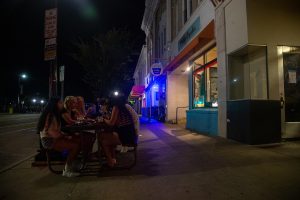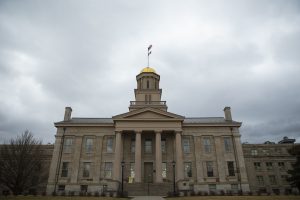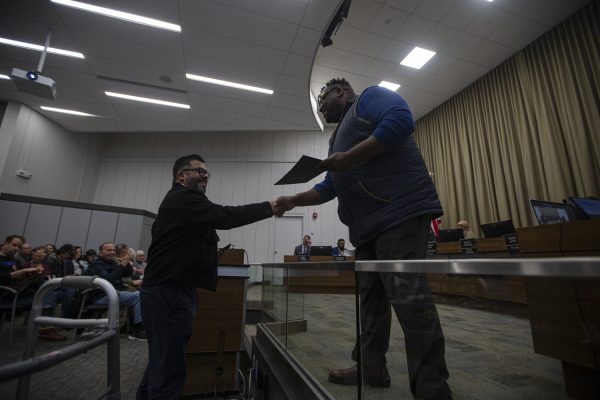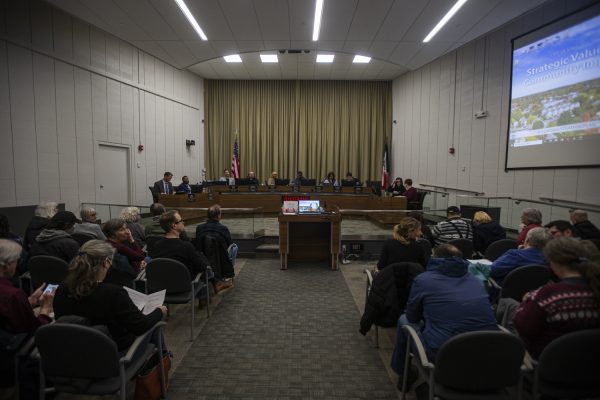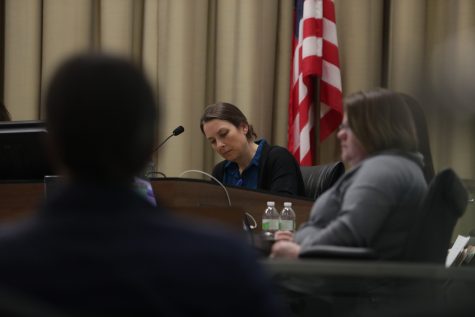Iowa City community leaders suggest renaming local park after Pulitzer Prize winner
The park would take the name of James Alan McPherson, the first Black writer to win the Pulitzer Prize for fiction and Iowa Writers’ Workshop professor for over 30 years
The trailhead looking south on Longfellow Nature Trail, 1401 Sheridan Ave. As seen on Aug 25, 2020
August 25, 2020
In recent letters addressed to the Iowa City City Council, community leaders suggested renaming a local park after James Alan McPherson, a professor at the Iowa Writers’ Workshop and the first ever Black author to win the Pulitzer Prize for fiction.
The park, currently known to neighborhood residents as Rogers Green, is accessible through an alley near the intersection of Sheridan Avenue and Rundell Street, in the neighborhood where McPherson used to live. It’s a narrow stretch of land that runs parallel to the Longfellow Nature Trail to the West, and is hidden behind a row of houses on Rundell Street to the East.
In its meeting last Tuesday, the city councilors said they are directing staff to look into the park renaming and signage process.
Dave Leshtz, editor of “The Prairie Progressive” and advisory board member of University of Iowa’s Center for Human Rights, is a resident of the neighborhood where the park is located. He said the park is currently known as Rogers Green after its previous caretaker.
“[The park] has an official name, but there’s never been a sign put up by the city and it’s never referred to by its official name, it’s just really this somewhat obscure park; a lot of local families know it and have picnics there,” Leshtz said. “It’s small but quite beautiful and again, epitomizes the neighborhood that James was a well-respected resident of for so many years.”
University of Iowa President Bruce Harreld was among those who wrote letters in support of the renaming. Harreld said the importance of commemorating McPherson is heightened now in the wake of George Floyd’s death and the Black Lives Matter movement, where there is an increased awareness of current racial inequalities.
“I very much appreciate and admire the city’s efforts to address racial inequality since the tragic death of George Floyd, and the University of Iowa joins you in doing all we can to end the trauma of discrimination and violence against Blacks and other people of color,” Harreld wrote in the letter. “By honoring James McPherson in a publicly high-profile way, we can demonstrate through this action our values of diversity, equity, inclusion, and free expression.”
Iowa City is one of the few UNESCO cities of literature in the world, and the Iowa Writers’ Workshop has been home to a number of well-known creative writers since its founding in 1936, including Kurt Vonnegut, Jr. and Flannery O’Connor, as well as McPherson.
Director of the Iowa City UNESCO City of Literature John Kenyon, who also wrote to the city council and said McPherson was more than just an impressive writer, but that he was also a valuable member of the community, both as a professor and a citizen.
Editor’s Note: Kenyon is a former Daily Iowan reporter.
“I think it’s a good idea for a city to take a look at what it’s doing to recognize its best citizens past and present and to evaluate if there are things they could do or should do to better celebrate people who have done great things in the history of the city,” Kenyon said.
McPherson attended Morgan State University, Morris Brown College, and Harvard Law School before receiving his Master of Fine Arts degree at the Iowa Writers’ Workshop in 1971. He returned 10 years later to be a professor there.
Aside from his Pulitzer, McPherson also won both the Guggenheim and MacArthur fellowships. He lived in Iowa City for 35 years, and died from pneumonia complications at age 72 in 2016.
Matthew Kelly, a recent graduate of the Iowa Writers’ Workshop, said he was completely unfamiliar with McPherson’s work before enrolling, but felt compelled to come to Iowa City after visiting the professor’s old office while on a visit.
“I went into the room and I don’t know what overcame me, but something swept past me in this way,” Kelly said. “Looking through the library, it was just me in the room, something told me I belonged here.”



